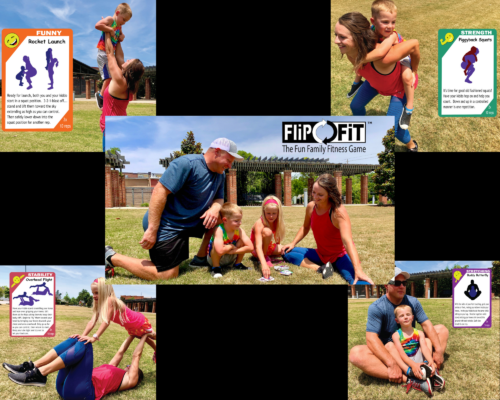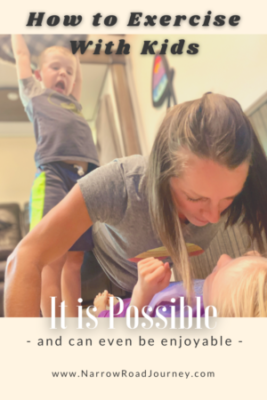-
0
Your Cart Items (0 items)
How to Protect Young Families from Illness- Are We Missing Something Obvious?
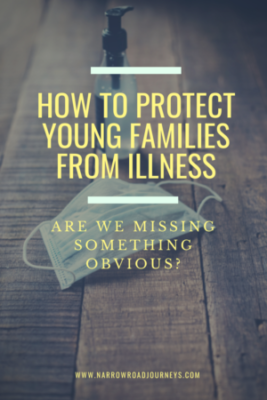
How to Protect Young Families from Illness- Are We Missing Something Obvious?
Are we jumping on the bandwagon with this title? Well, maybe – it’s been at the top of headlines everywhere for only 19 months! Yeah, you know what I’m talking about – The big “C” word. I am not, nor will I claim to be an expert in world health, virology, pandemics, epidemics or even politics for that matter. I am an expert in Kinesiology, the functional movement of the human body, and exercise. I do feel like we are missing something in the reactive culture, media, and medicine we consume by the minute – and so I am going to say it!
What I am about to explain is not new data or a revolutionary cure, rather it is information we have dating way back to “Pre-Covid” times. It is something that is not being talked about when it comes to our bodies’ ability to defend against bacteria, germs, and yes, viruses. I have to believe all the recommendations out there on how to defend our families against sickness are in our best interest. Please make the best decision for you and your community in that regard. However, besides the hygiene part, it is all reactionary!
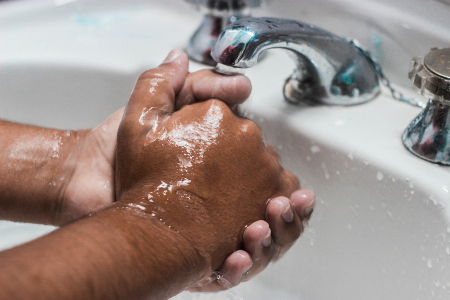
So how can we be more pro-active with our families in order to protect ourselves from sickness? Well, here it is: Be active, get sunshine, eat well, and EXERCISE! Yep, that’s the bombshell.
We’ve heard a lot from the CDC lately, yet we haven’t heard much of the shocking statistics they’ve had for years on the decline of the general populations’ physical health. We have heard from them the horrible effects Covid has on individuals with heart disease, diabetes, COPD, and obesity – WHY ARE WE NOT ADDRESSING THIS AS WELL? Boy, you put the two together, and we have a much more complete recommendation for our population.
Sure we are caught in some crud right now that we have to take care of, but I have a future – more importantly, my children have a future. Lets start paying some attention to that too!
Here is what we know about the failing health of our young generations:
- The CDC recommends 60 minutes of hard, active play for children per day. In 2018, Only 24% of kids met that requirement!
- Included in the above report is a look at adults: Only 23% of adults met their weekly exercise recommendation!
- The CDC reported in 2018 the prevalence of obesity in children aged 2-19 was 19.3%!
What else we know:
- Children learn habits, including health habits by the age of 9, and are rarely changed later in adulthood! – American Journal of Family Therapy, 2014
- Higher levels of activity in kids between the ages of 9-18 correlated directly with higher levels of physical activity in adulthood (Telama et al., 2005)
- On average kids walk 3,604 fewer steps in a weekend day as compared to an average school day. (Gregg and Hall, 2016)
- Social and parental companionship and emotional support are key to exercise participation (Rackow, Sholz and Hornung, 2015)
What does this mean? We (as in all people) might be missing something big! Our global health is failing in a big part due to a striking decrease in physical activity. Kids are at home more with parents that are way too busy and have technology readily at hand to occupy their kids. People with lower activity and an increased number of comorbidities are more susceptible to serious illness from outside sources.
For the sake of our future, we as parents need to change things, and it needs to start early with our kids. A few changes in lifestyle as a family can make a big difference. Please, take the necessary precautions and keep good hygiene for the sake of the pandemic now, but let’s not lose sight of our kids’ future!
“Those that think they not have time for bodily exercise will sooner or later have to find time for sickness.”
Edward Stanley – 1850’s We’ve known this for a long time!!
So how in the world are parents who are maxed out while taking care of their kids supposed to get their family to exercise? I will present some ideas in a future blog post, and stick to just saying: Stop – make time, and begin to create a new family pattern. Start with planning 30 minutes three times a week that you will do something active – together.
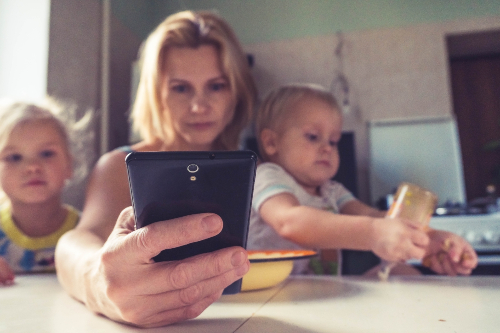
Actions Steps
- Take a look at the physical activity level of your children when they are at home – are they meeting the recommendations?
- Do you participate in physical activity WITH your children? Start to brainstorm and then try some engaging activity to see what your family enjoys.
- Establish a Routine – start with a devoted 30 minutes 3x/week in which you dedicate that time to some form of physical activity – it is never too early to start forming good habits with your children.
- Be sure to check out future blog posts – we will be provide some guidelines on the what, where, how’s and more detailed why’s in order to help the creative juices start flowing for your family.
As a way to possibly get you started, we have developed an awesome game parents across the country are beginning to use – Flip Fit – The Fun Family Fitness Game. Clicking on this link will direct you to a description of how valuable this tool could be for your family – all for less than the price of one movie ticket!
Check out Flip Fit and be sure to subscribe to our blog for a ton more family family friendly stories, tools, and tips.
Enjoy Your Journey!

About the Author
Matt earned his B.S. of Kinesiology with a Biology minor from Indiana University in 2005. He went on to earn his Doctorate of Physical Therapy from Indiana University in 2008. He is also a Certified Personal Trainer as well as a Certified Strength and Conditioning Specialist.
Matt and his wife Leah, also a Physical Therapist, have taken their life on the road to pursue more time with their two children (8 and 5 years old) while enjoying life together. Alternating travel PT contracts allows Matt to pour into the development of his children through homeschooling part of the year and engaging in an active life with his family.
Articles referenced in the post are as follows:
Centers for Disease Control and Prevention (2018). National Health Statics Report.
Gregg, M, Hall, N (2016) Increasing children’s weekend physical activity. SCAPPS Exercise Psychology, 48, 1.
National Institutes of Health (2013). Shape Your Family’s Habits: Helping Kids Make Healthy Choices.
Rackow, Sholz, and Hornung (2015) Received social support and exercising: An intervention study to test the enabling hypothesis. British Journal of Health Psychology, 20, 4, 763-776.
Telama, R. et al. (2015). Physical activity from childhood to adulthood: A 21-year traacking study. American Journal of Preventative Medicine, 28, 3, 267-273.
Related Articles

The A1A and Beyond Part I

Troy, Alabama – Great Charm and Awesome People!



